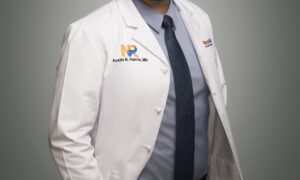When it comes to choosing a rehab center, the sheer number of options can be overwhelming. From luxury retreats to community-based programs, finding the best drug rehab centers depends on individual needs, treatment goals, and personal preferences.
This comprehensive guide will walk you through what makes a rehab center stand out and how to identify the best one for you or a loved one.
While the answer to ‘What are the best rehab centers?’ may be subjective, our guide will show you how to choose the right match for your goals and needs when seeking treatment.
Understanding Substance Abuse Treatment
Substance abuse treatment is a comprehensive approach designed to help individuals overcome addiction to substances such as drugs or alcohol.
The primary goal is not only to achieve and maintain sobriety but also to address any underlying mental health issues that may be contributing to the addiction. Effective substance abuse treatment recognizes the complexity of addiction and employs a multifaceted strategy to support recovery.
Definition and Explanation
Substance abuse treatment typically involves a combination of medical, psychological, and social interventions. Medical interventions may include detoxification, medication-assisted treatment, and management of withdrawal symptoms.
These medical approaches are crucial for stabilizing and preparing people for further treatment. Psychological interventions often involve individual and group therapy, cognitive-behavioral therapy (CBT), and family therapy, all aimed at addressing the mental and emotional aspects of addiction.
Social interventions, such as support groups, peer counseling, and vocational training, provide the necessary social support and skills to help individuals reintegrate into society and maintain sobriety.
Types of Addiction Treatment
There are several types of addiction treatment, each tailored to meet different needs and circumstances:
- Inpatient Treatment: This involves living at a treatment center for a period of time, typically ranging from 30 days to several months. Inpatient treatment provides a structured environment with 24/7 support, making it ideal for those with severe addictions or co-occurring mental health issues.
- Outpatient Treatment: This allows individuals to attend therapy sessions and support groups on an outpatient basis while living at home. It offers more flexibility and is suitable for those with less severe addictions or those who have completed inpatient treatment.
- Residential Treatment: Similar to inpatient treatment, residential treatment involves living at a treatment center for an extended period, often several months to a year or more. This type of treatment is beneficial for individuals who need long-term support and a stable environment to recover.
- Partial Hospitalization: This involves attending therapy sessions and support groups daily while living at home. It provides intensive treatment similar to inpatient care but allows individuals to return home each day.
- Intensive Outpatient Treatment: This involves attending therapy sessions and support groups regularly while living at home. It offers a higher level of care than standard outpatient treatment and is suitable for those who need more support but do not require inpatient care.
Why the Right Rehab Center Matters
Addiction and mental health challenges, including drug and alcohol addiction, are complex, often requiring specialized care and personalized approaches.
A well-matched rehab program not only increases the likelihood of recovery but also sets the stage for long-term success. A mismatch, on the other hand, can lead to frustration and setbacks.
The National Institute on Drug Abuse (NIDA) emphasizes the importance of individualized treatment plans, which combine evidence-based practices, professional expertise, and patient-specific goals.
A high-quality rehab center will prioritize these elements, helping individuals build a strong foundation for recovery.
Key Factors to Consider When Choosing a Rehab Center
1. Accreditation and Licensing
The best drug rehab centers are accredited by reputable organizations such as the Joint Commission or the Commission on Accreditation of Rehabilitation Facilities (CARF). These certifications ensure that the facility meets rigorous standards for care and safety.
2. Evidence-Based Treatment Methods
Look for programs that use evidence-based therapies like cognitive behavioral therapy (CBT), dialectical behavior therapy (DBT), and medication-assisted treatment (MAT). These approaches are supported by research and have been proven to work for many individuals.
3. Customized Care Plans
Each person’s recovery journey is unique. The best facilities tailor treatment plans to the individual, addressing co-occurring disorders, personal triggers, and specific life circumstances, including the integration of mental health services.
4. Qualified Staff
Top-tier centers employ licensed medical professionals, certified addiction counselors, and therapists with experience in mental health and substance use treatment. Check for staff credentials and ratios to ensure you’ll receive adequate attention and care.
5. Continuum of Care
Recovery doesn’t end after detox or inpatient addiction treatment. Centers offering a continuum of care—including outpatient programs, sober living arrangements, and alumni support—are better equipped to support long-term success.
6. Location and Amenities
While the environment isn’t the most important factor, it can impact recovery. Some prefer serene, retreat-like settings, while others thrive in urban environments closer to family and work commitments.
Amenities like fitness programs, nutrition counseling, and holistic therapies can also enhance the experience.
Specialized Programs
Specialized programs are designed to address specific types of addiction or underlying mental health issues. These programs recognize that each individual’s journey to recovery is unique and requires tailored approaches to meet their specific needs.
Programs for Specific Addictions
- Alcohol Treatment Programs: These programs are specifically designed to help individuals overcome addiction to alcohol. They often include detoxification, counseling, and support groups tailored to address the unique challenges of alcohol addiction.
- Drug Treatment Programs: These programs focus on helping individuals overcome addiction to specific types of drugs, such as opioids, cocaine, or methamphetamines. They may include medication-assisted treatment, behavioral therapies, and support groups.
- Dual Diagnosis Programs: These programs are designed for individuals struggling with both addiction and underlying mental health issues, such as depression or anxiety. They provide integrated treatment that addresses both conditions simultaneously.
- Trauma-Informed Programs: These programs are tailored for individuals who have experienced trauma, such as physical or emotional abuse. They incorporate therapies that address the impact of trauma on addiction and recovery.
- LGBTQ+ Programs: These programs are designed to support individuals who identify as LGBTQ+ and are struggling with addiction or underlying mental health issues. They provide a safe and affirming environment that addresses the unique challenges faced by the LGBTQ+ community.
The best rehab centers offer a range of specialized programs to meet the unique needs of each individual. When selecting a treatment center, it’s essential to consider the types of programs offered and whether they align with your specific needs and goals.
This personalized approach ensures that each person receives the most effective care for their situation, increasing the likelihood of successful recovery.
Top Best Rehab Centers in the U.S.
While the “best” rehab center varies by individual, here are some highly regarded facilities known for their excellence in care:
1. Hazelden Betty Ford Foundation
- Location: Nationwide
- Specialties: Substance use disorders, co-occurring mental health conditions
- Why It’s Great: With locations across the U.S., Hazelden Betty Ford offers comprehensive treatment programs grounded in evidence-based practices and a holistic philosophy.
2. Promises Behavioral Health
- Location: Various states
- Specialties: Trauma-focused care, addiction treatment
- Why It’s Great: Promises stands out for its trauma-informed approach and tailored programs for professionals, young adults, and more.
3. Caron Treatment Centers
- Location: Pennsylvania, Florida, and beyond
- Specialties: Addiction treatment, mental health support
- Why It’s Great: Caron emphasizes family involvement and integrates the latest research into its treatment methods.
4. Passages Malibu
- Location: Malibu, California
- Specialties: Holistic addiction treatment
- Why It’s Great: Known for luxury accommodations and a non-12-step approach, Passages Malibu attracts clients seeking individualized, alternative care.
5. The Recovery Village
- Location: Multiple states
- Specialties: Dual diagnosis, addiction treatment
- Why It’s Great: This facility focuses on integrated care, offering services for substance use and co-occurring mental health disorders, including specialized mental health treatment.
How to Identify the Right Rehab Center for You
Step 1: Define Your Needs
Start by identifying what you or your loved one need from a program, whether it’s for drug addiction, co-occurring disorders, or other specific needs. Are you dealing with co-occurring disorders? Do you need inpatient care, outpatient options, or a mix?
Step 2: Set a Budget
Costs for rehab can range from free community programs to luxury centers charging upwards of $100,000 per month. Check with your insurance provider to see what is covered and explore scholarships or financing options if needed.
Step 3: Research and Compare
Use directories like SAMHSA’s Behavioral Health Treatment Locator or the National Association of Addiction Treatment Providers (NAATP) to find accredited centers. Read reviews, check credentials, and ask questions.
Step 4: Visit or Consult
If possible, visit the facility or schedule a virtual consultation. Speak with staff, tour the grounds, and get a feel for the environment.
Step 5: Consider Aftercare Options
The best rehab centers provide robust aftercare programs to prevent relapse, often through a dedicated recovery center. Look for facilities offering alumni networks, ongoing counseling, or sober living arrangements.
Real-World Success Stories
One of the most inspiring aspects of rehab centers is witnessing transformation. For example, a former patient of Caron Treatment Centers shared how the facility’s family-focused approach helped rebuild trust with loved ones while achieving sobriety.
Similarly, Hazelden Betty Ford’s alumni often highlight how evidence-based therapy and alumni support helped sustain recovery years after treatment. These stories underscore the power of tailored care and community.
Common Misconceptions About Rehab Centers
Myth 1: Rehab is Only for Severe Cases
Reality: Many people seek treatment before hitting “rock bottom.” Early intervention often leads to better outcomes.
Myth 2: All Rehab Centers Use the Same Methods
Reality: Treatment approaches vary widely. While some focus on 12-step principles, others use holistic or alternative methods.
Myth 3: You Can’t Afford Quality Care
Reality: Many programs offer sliding-scale fees, accept insurance, or provide scholarships to make treatment accessible.
How TechBullion Supports Informed Decisions
TechBullion has long been a trusted technology, business, and innovation resource. Expanding into health-related content reflects the platform’s commitment to empowering readers with actionable information.
This guide is part of that mission, offering practical insights to help you navigate the often intimidating world of rehab centers.
Final Thoughts on Selecting the Best Rehab for Your Needs
Choosing the best rehab center is a deeply personal decision. By focusing on accredited treatment centers, and evidence-based facilities with personalized care, you can find the right program to support your recovery journey.
Whether you’re seeking luxury amenities or community-focused care, the key is to prioritize quality and fit over labels or hype.
TechBullion remains committed to helping our readers make informed decisions, whether in the realm of technology or behavioral health. Explore our resources for more insights that matter to you.
Disclaimer
This article is intended for informational purposes only and should not be considered medical or professional advice. Readers should consult with a qualified healthcare provider or treatment professional for personalized advice and information regarding specific treatment needs. TechBullion does not endorse any particular treatment center or program mentioned in this guide.






































